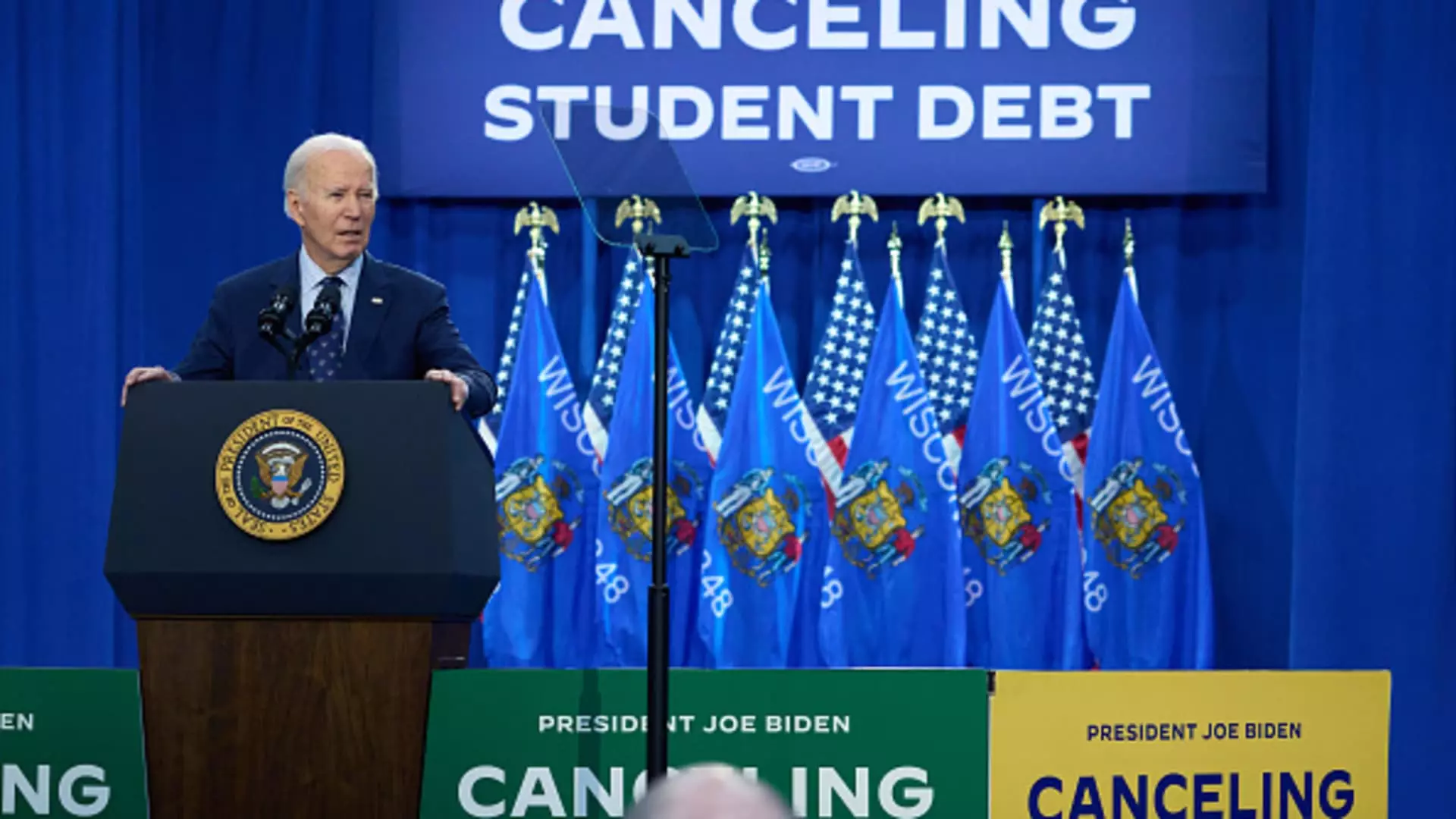The Biden Administration’s Spring 2024 Unified Agenda reveals that a final rule on student loan relief may be published in early October, right before the presidential election in November. According to higher education expert Mark Kantrowitz, regulatory changes like these usually take a significant amount of time to implement, but the Department of Education could expedite the process through a notice in the Federal Register. This timing could potentially create a conflict between Democrats and Republicans over the issue of forgiving student debt.
Conservatives have often questioned the fairness of forgiving student loan debt, arguing that it places an undue burden on taxpayers. The divide is not just political, as statistics show that only around a third of Americans aged 25 and older hold a bachelor’s degree. Groups like Heritage Action for America have criticized Biden’s debt forgiveness plans, calling them unconstitutional and an unfair financial burden on taxpayers.
Despite the controversy, canceling student debt remains an important issue for a significant percentage of voters. A survey conducted by SocialSphere found that 48% of voters consider student loan cancellation as a crucial issue in the upcoming elections. The survey also revealed that Gen Z and millennial respondents, as well as Black and Hispanic voters, support the action. Even among young conservatives, there is support for erasing outstanding education debt.
Former President Trump has been vocal in opposing Biden’s loan relief policies and has promised deeper cuts to financial aid programs if re-elected. In contrast, Biden’s administration has been working on a revised plan for student loan forgiveness after facing legal challenges to its initial proposal. Despite attempts to target the relief more specifically this time, up to 20 million borrowers could still benefit from the new plan, which critics argue is too similar to the original.
Legal challenges are expected to follow the publication of Biden’s new student loan forgiveness plan in October. Several Republican-led states have already initiated lawsuits against the administration’s previous debt relief efforts, citing concerns about government overreach and lender interests. The recent Supreme Court ruling overturning the Chevron doctrine, which required deference to federal agencies’ interpretations of laws, could further complicate the legal landscape for Biden’s student loan forgiveness plan.
The battle over student loan forgiveness is set to intensify in the coming months, with political, public, and legal challenges converging in a contentious debate over the future of higher education finance in the United States. President Biden’s revised debt relief plan faces an uphill battle against opposition from conservative groups, legal challenges, and a shifting regulatory environment. As the presidential election approaches, the issue of student loan forgiveness is likely to remain a central point of contention, reflecting broader debates about government intervention, fairness, and accountability in addressing the student debt crisis.

